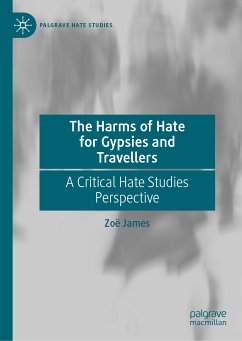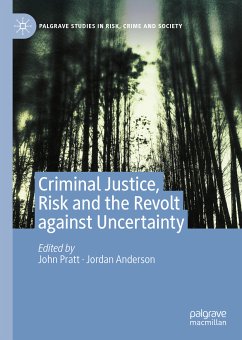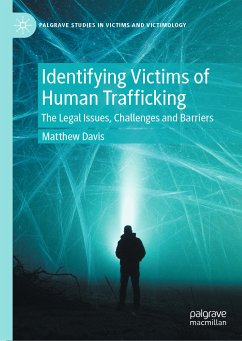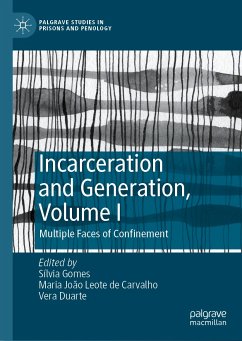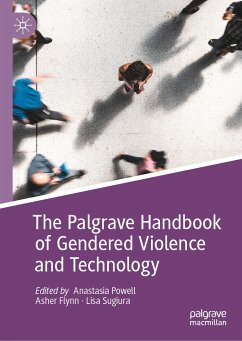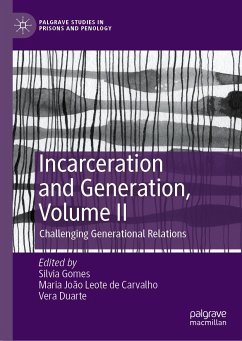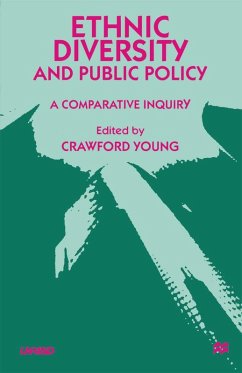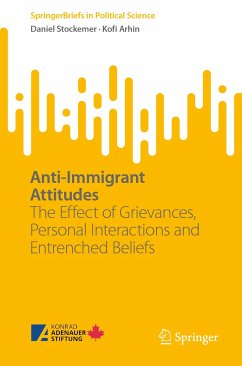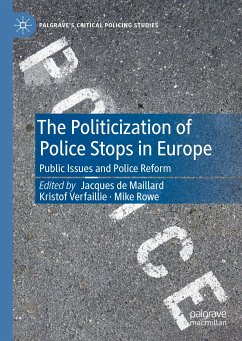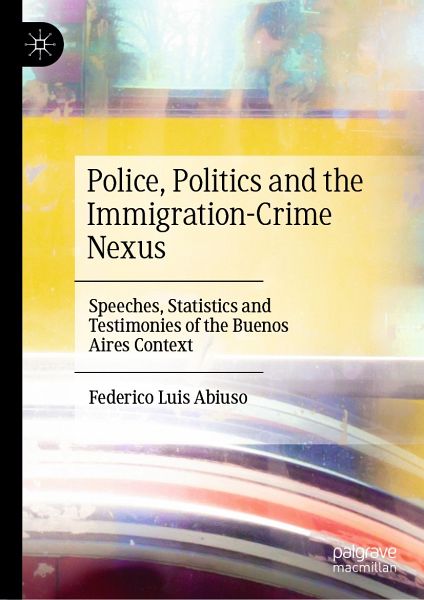
Police, Politics and the Immigration-Crime Nexus (eBook, PDF)
Speeches, Statistics and Testimonies of the Buenos Aires Context
Versandkostenfrei!
Sofort per Download lieferbar
96,95 €
inkl. MwSt.
Weitere Ausgaben:

PAYBACK Punkte
48 °P sammeln!
This book examines the relationship between immigration, crime, police and politics in the city of Buenos Aires during the Cambiemos ("Let's Change") administration, which took place in Argentina between 2015 and 2019. It draws on semi-structured interviews with migrants to offer insights into interactions between police and migrants, narratives of police violence, police attitudes towards migrants, the nexus between police and politics and the perception of the vulnerability of the migratory community of belonging to police action. Using a mixed methods approach, it also draws on secondary qu...
This book examines the relationship between immigration, crime, police and politics in the city of Buenos Aires during the Cambiemos ("Let's Change") administration, which took place in Argentina between 2015 and 2019. It draws on semi-structured interviews with migrants to offer insights into interactions between police and migrants, narratives of police violence, police attitudes towards migrants, the nexus between police and politics and the perception of the vulnerability of the migratory community of belonging to police action. Using a mixed methods approach, it also draws on secondary quantitative data regarding police practices of detention of migrants and examines political discourses around the immigration-crime association. In essence, it discusses the changes in attitude of the police towards different ethnic-national groups during the administration Cambiemos. In this sense, it presents empirical research and methodological insights fromthe Global South.
Dieser Download kann aus rechtlichen Gründen nur mit Rechnungsadresse in A, B, BG, CY, CZ, D, DK, EW, E, FIN, F, GR, HR, H, IRL, I, LT, L, LR, M, NL, PL, P, R, S, SLO, SK ausgeliefert werden.




